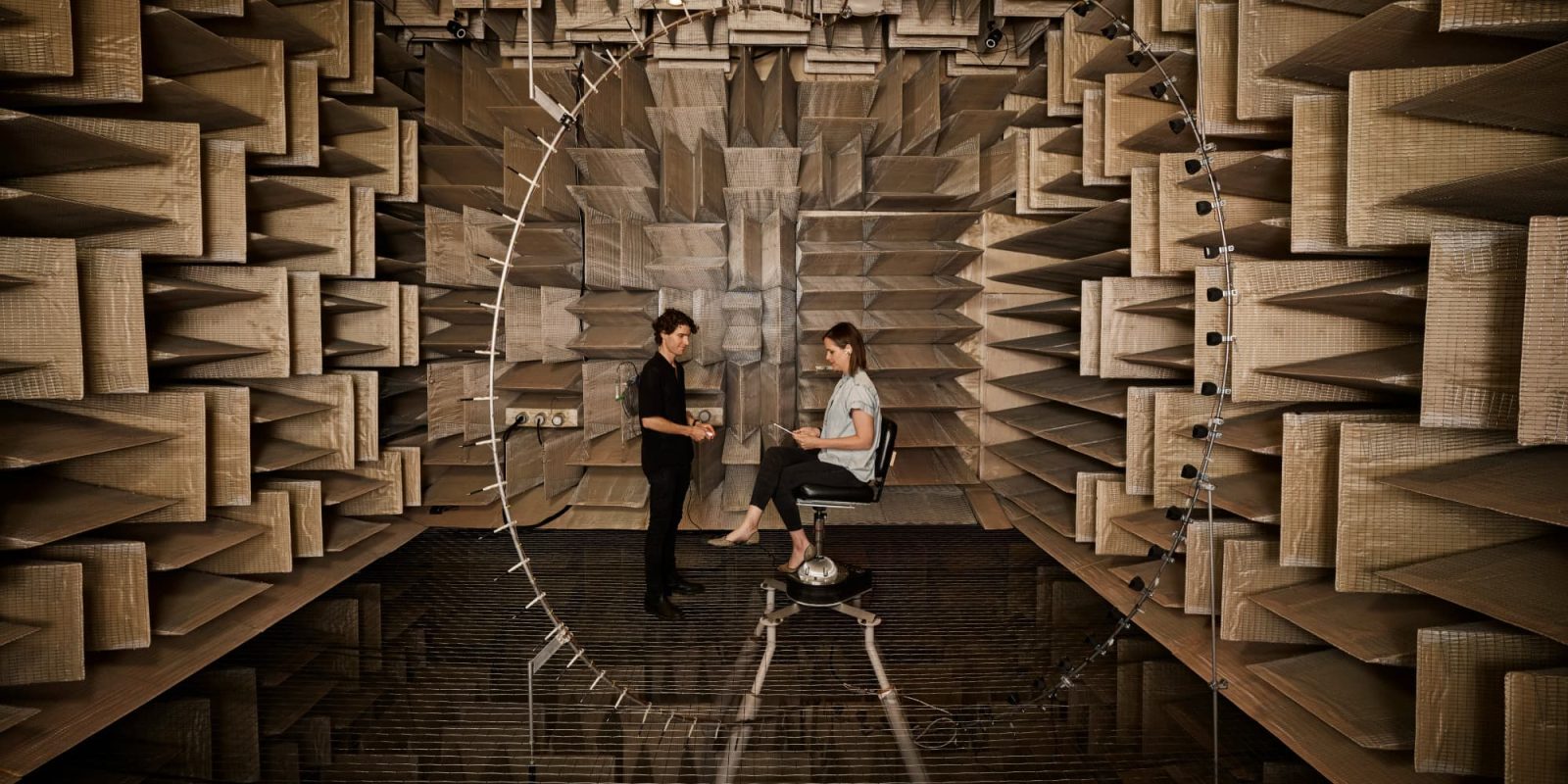
Today Apple debuted powerful new AirPods Pro 2 features as part of iOS 18.1. Coordinated with that launch, the company has offered a rare look inside the Audio Lab where new AirPods features are developed.
Hearing health features tested in Audio Lab
It’s not often that Apple provides a glimpse at the inner workings of its development labs. One notable exception was in early 2018, when the first HomePod launched and Apple provided a special look into the audio lab where it was developed.
Today, the Audio Lab in Cupertino is back in the spotlight as the place where AirPods Pro 2’s new hearing health features were developed.
On the process and tools for creating the new Hearing Aid and Hearing Test features:
lockquote class=”wp-block-quote is-layout-flow wp-block-quote-is-layout-flow”>
To fine-tune and validate the Hearing Aid feature, a broad demographic of study participants with a wide range of hearing levels were put into this controlled environment to complete a speech-in-noise test. The test consisted of a participant sitting in a chair in the middle of the space while a complex sound scene, like a noisy restaurant, played. The participant then had to repeat the words of a single speaker, distinguishing from background conversations.
[…]
Additionally, three clinical-grade audiometric booths — the type that patients would typically encounter during hearing tests in a clinician’s office — are permanently installed in the Audio Lab. For internal testing, the engineering team worked with audiologists in the booths to conduct thousands of clinical-grade audiometry tests and software-based hearing tests prior to moving the new Hearing Test feature into clinical validation studies.
lockquote>
Different lab spaces provide ideal environments for unique tasks
Apple also details several key spaces within the Audio Lab that are used in the development process:
lockquote class=”wp-block-quote is-layout-flow wp-block-quote-is-layout-flow”>
The Longwave anechoic chamber was built on a separate foundation that uses springs to isolate it from the rest of the lab, allowing for accurate sound measurements without any noise or vibration disturbances. The chamber includes a custom-built loudspeaker and microphone arc that can measure head-related transfer functions, or in other words, how sound interacts with the human body. Having both the loudspeaker and microphone arrays within this chamber makes it a unique space with many applications, including AirPods, iPhone, and HomePod development.
[…]
On the other side of the Audio Lab, to ensure the highest sound quality in every audio product Apple makes, the Fantasia Lab uses a spherical array of 50 loudspeakers to simulate hundreds of real-world sound scenes — like a shopping mall, busy street, or travel on an airplane — in a tightly controlled, evenly distributed sound field.
lockquote>
Overall, the full Apple Newsroom article is well worth a read. It provides fascinating insight into the tools and processes Apple’s team is using to develop not only new AirPods features, but also advancements for speakers and microphone technology in the iPhone, HomePod, Mac, and more.
What’s your biggest takeaway about Apple’s Audio Lab? Let us know in the comments.
FTC: We use income earning auto affiliate links. More.



![[CITYPNG.COM]White Google Play PlayStore Logo – 1500×1500](https://startupnews.fyi/wp-content/uploads/2025/08/CITYPNG.COMWhite-Google-Play-PlayStore-Logo-1500x1500-1-630x630.png)